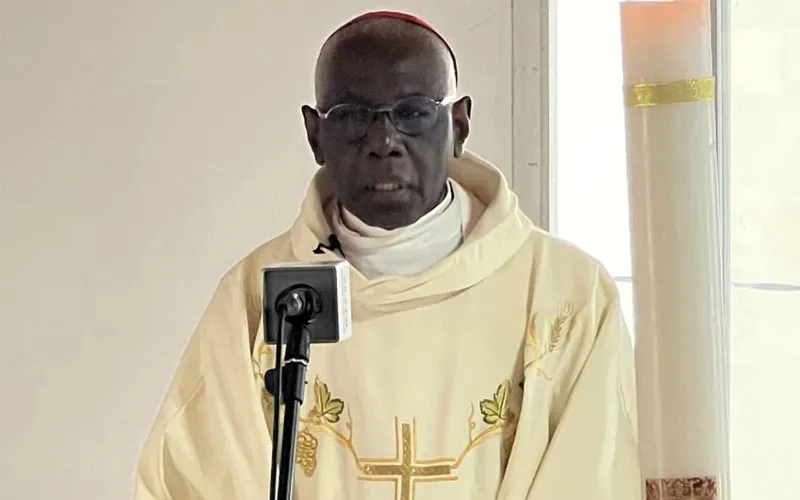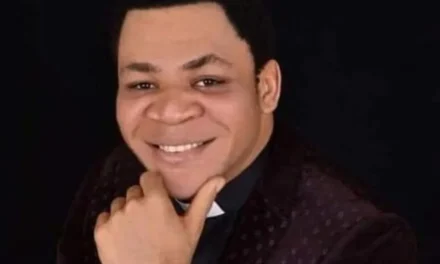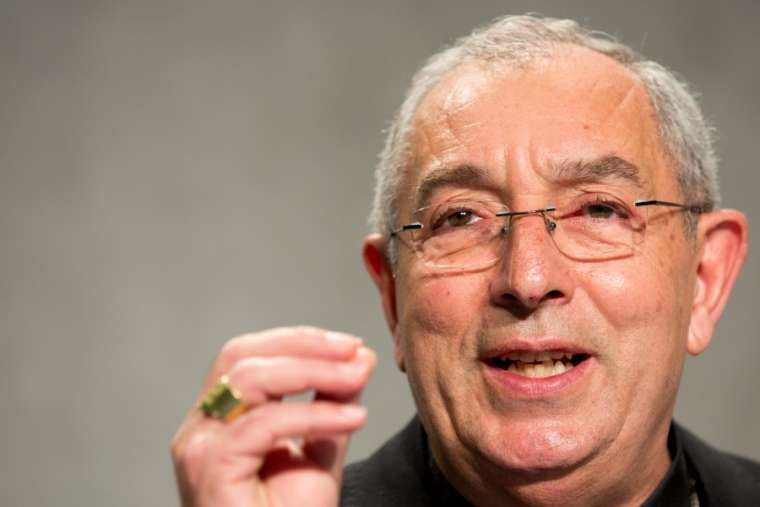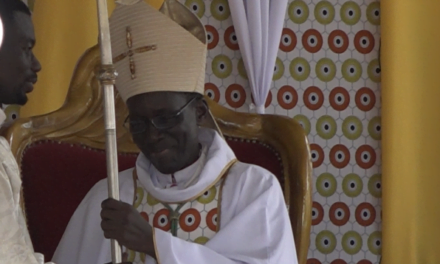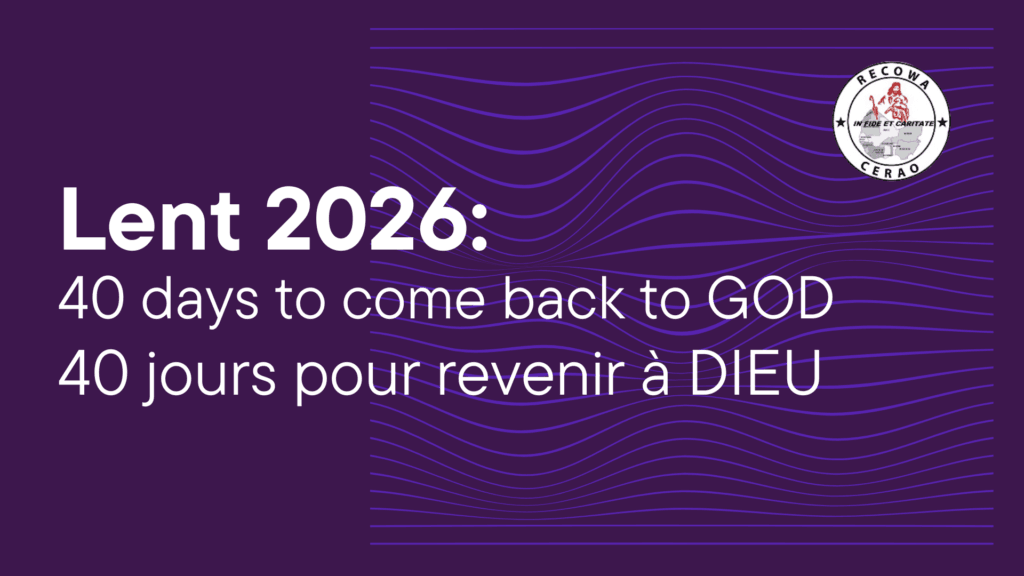One of the most prominent sons of Africa and a heavyweight in the city of the Vatican, Cardinal Sarah has recently urged Africa’s Catholic Bishops to Defend “unity of faith” in the October 2024 Synod on Synodality Session. The Correspondent of RECOWACERAO NEWS AGENCY, RECONA strictly attached to the city of the Vatican has reported that Robert Cardinal Sarah has urged Catholic Bishops in Africa to be keen on defending the Catholic faith, voicing their opposition to defenders of “particular cultures” during the October 2024 session of the ongoing Synod on Synodality, which Pope Francis extended to 2024, with the first session, 4-29 October 2023, having concluded with a 42-page summary report.
In his Tuesday, April 9 address to members of the National Episcopal Conference of Cameroon (NECC), Cardinal Sarah said, “At the next session of the Synod, it is vital that the African Bishops speak in the name of the unity of the faith, and not in the name of particular cultures.”
“At the last Synod, the Church in Africa forcefully defended the dignity of the man and woman created by God. Her voice was ignored and scorned by those whose sole obsession is to please Western lobbies,” he told NECC members on the second day of their 49th Plenary Assembly.

The Guinean-born Cardinal who, until his retirement in February 2021, was serving as Prefect of the Vatican Congregation for Divine Worship and the Discipline of the Sacraments added, “The Church in Africa will soon have to defend the truth of the Priesthood and the unity of the faith. The Church in Africa is the voice of the poor, the simple and the small.”
The Church in Africa, he continued, “is charged with proclaiming the word of God in the face of Western Christians who, because they are rich, believe themselves to be evolved, modern, and wise in the wisdom of the world.”
“It seems that, by a mysterious design of providence, African Bishops are now the defenders of the universality of the faith in the face of the proponents of a fragmented truth; Africans are the defenders of the unity of the faith in the face of the proponents of the culture of relativism,” Cardinal Sarah told Catholic Bishops in Cameroon at the headquarters of NECC in Mvolyé in the country’s Catholic Archdiocese of Yaoundé.
He further said, “It’s not surprising, then, that Catholic Bishops in Africa, in their limitations, are the heralds of divine truth … for God has chosen those who seem weak in the world, to cover with confusion the strong”; and that God has chosen those who seem to hail from unpopular backgrounds, to reduce to nothing those from popular backgrounds.
He posed, “Are we to believe that the synod will be instrumentalized by those who, under the guise of mutual listening and conversation in the Spirit, serve an agenda of worldly reforms?”
Cardinal Sarah went on to laud Catholic Bishops in Cameroon for their collective stance against Fiducia Supplicans (FS), the document that the Vatican Dicastery for the Doctrine of Faith (DDF) released last December permitting the blessing of “same-sex couples” and couples in other “irregular situations”.
He described NECC members’ decision to prohibit the implementation of FS in their respective Episcopal Sees and territories they govern as “courageous and prophetic” and lauded them for opposing “homosexuality and the blessing of homosexual couples.”
“By recalling Catholic doctrine on this subject, you have greatly and profoundly served the unity of the Church. You have done a work of pastoral charity by recalling the truth,” the Cardinal said.
He faulted the argument that Catholic Bishops in Africa were opposed to FS mainly because of African traditional cultures, terming it “false and ridiculous”.
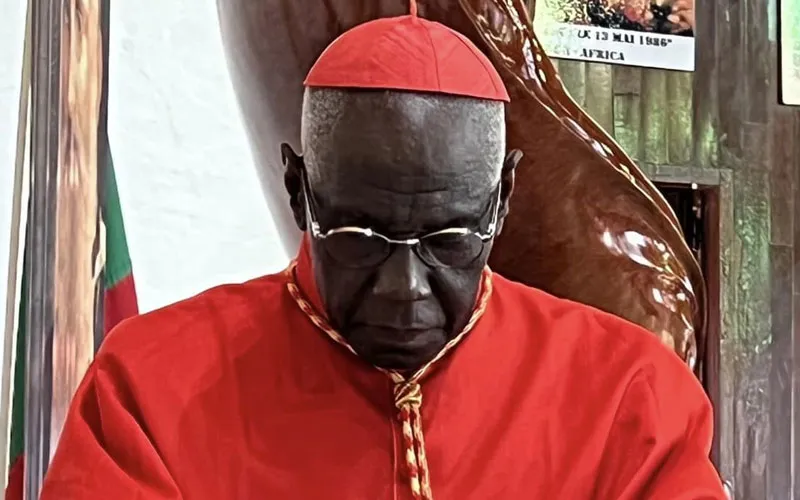
“Some have asserted, in a logic of intellectual neo-colonialism, that Africans are not yet ready to bless homosexual couples for cultural reasons,” Cardinal Sarah lamented, alluding to the January 11 statement that the leadership of the Symposium of Episcopal Conference of Africa and Madagascar (SECAM) issued, in which reasons for not implementing FS in Africa were highlighted and explained.
SECAM statement, a follow up of the December 20 appeal for opinions on FS from Presidents of Catholic Bishops’ Conferences of Africa and its Islands, cited a previous DDF Declaration on homosexuality, the Catechism of the Catholic Church (CCC), the Sacred Scriptures, and the language used in FS as additional reasons for the reluctance of the Catholic Bishops in Africa to implement the DDF Declaration on the continent.
“The constant teaching of the Church describes homosexual acts as ‘intrinsically disordered,’” Catholic Bishops in Africa said, referencing the DDF 29 December 1975 “Declaration on certain questions concerning sexual ethics”, Persona Humana.
Referring to NECC members’ opposition to FS implementation in the Central African nation, Cardinal said, “You spoke for the whole Church: in the name of the truth of the Gospel and for the sake of human dignity and the salvation of all humanity in Jesus Christ.”
“You spoke in the name of the one Lord, the one faith of the Church. Since when has the truth of the faith, the teaching of the Gospel, been subject to particular cultures? This vision of a faith adapted to cultures reveals the extent to which relativism divides and corrupts the unity of the Church,” the Guinean Cardinal, who is set to conclude his visit to Cameroon on April 12 said.
He called upon Catholic Bishops in Africa to exercise “great vigilance” during the October 2024 Synod on Synodality session, which the General Secretariat of the Synod, the Vatican office coordinating the ongoing synodal consultative process, has highlighted in a four-page December 12 document, titled “Towards October 2024,” that details “the steps to be taken in the months between now and the Second Session of the Synodal Assembly.”

“We know that some, even if they say otherwise, will defend a reform agenda. Among these is the destructive idea that the truth of the faith should be received in different ways in different places, cultures and peoples,” Cardinal Sarah lamented, adding, “This idea is merely a disguise for the dictatorship of relativism so strongly denounced by Benedict XVI. Its aim is to allow shortcomings in doctrine and morals in certain places, on the pretext of adaptation to cultures.”
He explained, “They would like to allow the female diaconate in Germany, married priests in Belgium, confusion between ordained priesthood and baptismal priesthood in Amazonia.”
“Some recently appointed expert theologians,” Cardinal Sarah said, alluding to Pope Francis’ decision to appoint “Church experts” to study groups to examine 10 themes, including the question of women Deacons and the criteria for selecting candidates to Episcopacy, among other topics.
He added, “Make no secret of their plans. So, they’ll say to you with false kindness: Don’t worry, in Africa, we won’t impose this kind of innovation on you. You’re not culturally ready.”
The 78-year-old Cardinal, who started his Episcopal Ministry in December 1979 as Archbishop of Guinea’s Conakry Archdiocese emphasized, “We, the successors of the Apostles, are not ordained to promote and defend our cultures, but the universal unity of the faith.”
“We act, in your words, Bishops of Cameroon, in the name of the truth of the Gospel and for the human dignity and salvation of all humanity in Jesus Christ. This truth is the same everywhere, in Europe, Africa and the United States! Just as human dignity is the same everywhere,” Cardinal Sarah said in his address to NECC members on April 9.
- CATHOLIC ARCHBISHOP IN GHANA HAILS POPE LEO XIV AS GOD’S GIFT - 23 mai 2025
- POPE LEO XIV TO APPROVE CANONIZATIONS - 22 mai 2025
- THE EVOLUTION OF PAPAL TRANSPORTATION - 20 mai 2025

